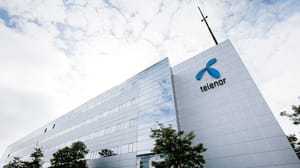Ericsson is being groomed for a starring role in MasOrange's 5G future
Ericsson has been chosen to upgrade recently-merged MasOrange's 5G network with Open RAN technology.
October 29, 2024

Under the five-year deal, Ericsson will supply the Spanish telco with its massive MIMO radios, RAN compute solutions, and core infrastructure, all of which support the latest in open, programmable networking tech. The project also includes network optimisation and densification – adding more nodes and sites to generally improve performance, both in rural and high-traffic areas.
Ericsson and MasOrange claim this Open RAN-based network integration is the first of its kind in Europe, and will equip the operator with high-performing, energy efficient infrastructure.
"This collaboration with Ericsson represents a decisive moment not only for MasOrange, but also for [the] European telecommunications industry as a whole and for the Spanish market, as we lead the development of Open RAN and we lay the foundation for an open and programmable mobile infrastructure that will drive technological advances and sustainable growth," said MasOrange CEO Meinrad Spenger.
"With this agreement we look at the future where high-performance and differentiated networks will be key to digitalising enterprises and society," added Jenny Lindqvist, SVP and head of Europe and LatAm at Ericsson. "Our vision for the industry is based on open and programmable networks with capabilities that are exposed through network APIs and leveraged by an ecosystem of developers – driving rapid innovation and growth. We are very proud of being trusted by MasOrange to initiate this strategic execution in Europe for the development of the 5G innovation cycle."
Ericsson said the Open RAN upgrade/integration will run in parallel with the deployment of its 5G standalone (SA) equipment in MasOrange's rural network.
Here lies the crux of this agreement, because for MasOrange, this deal is not only about operating the latest and greatest network, or generating €490 million of annual merger synergies, it's also about scaling down its reliance on two of Ericsson's rivals, namely Huawei and ZTE.
As sister publication Light Reading reported in July – citing a report from Expansion – the completion of the merger between Orange and MasMovil brought about a change of attitude towards Chinese network vendors.
Up to that point, Orange Spain had been comfortable using Huawei equipment alongside Ericsson's, and in 2019 it went a step further by adding ZTE into the mix. According to Expansion, ZTE and Huawei at their peak accounted for 4% and 54% respectively of MasOrange's RAN.
Following the merger though, rumours surfaced that MasOrange planned to cut Huawei's share to around 39%, and remove ZTE entirely by 2027.
Ericsson was touted as the likely beneficiary, with the Swedish kit maker being lined up as the replacement vendor, a move that would increase its share of MasOrange's RAN to 61%.
Furthermore, the rumour mill claimed that MasOrange is inclined to make Ericsson its sole vendor by 2028-29, if all goes well with the rip out and replace, and presumably also this newly-announced Open RAN upgrade.
Good news for Ericsson then, provided it can deliver.
About the Author
You May Also Like












_1.jpg?width=300&auto=webp&quality=80&disable=upscale)
